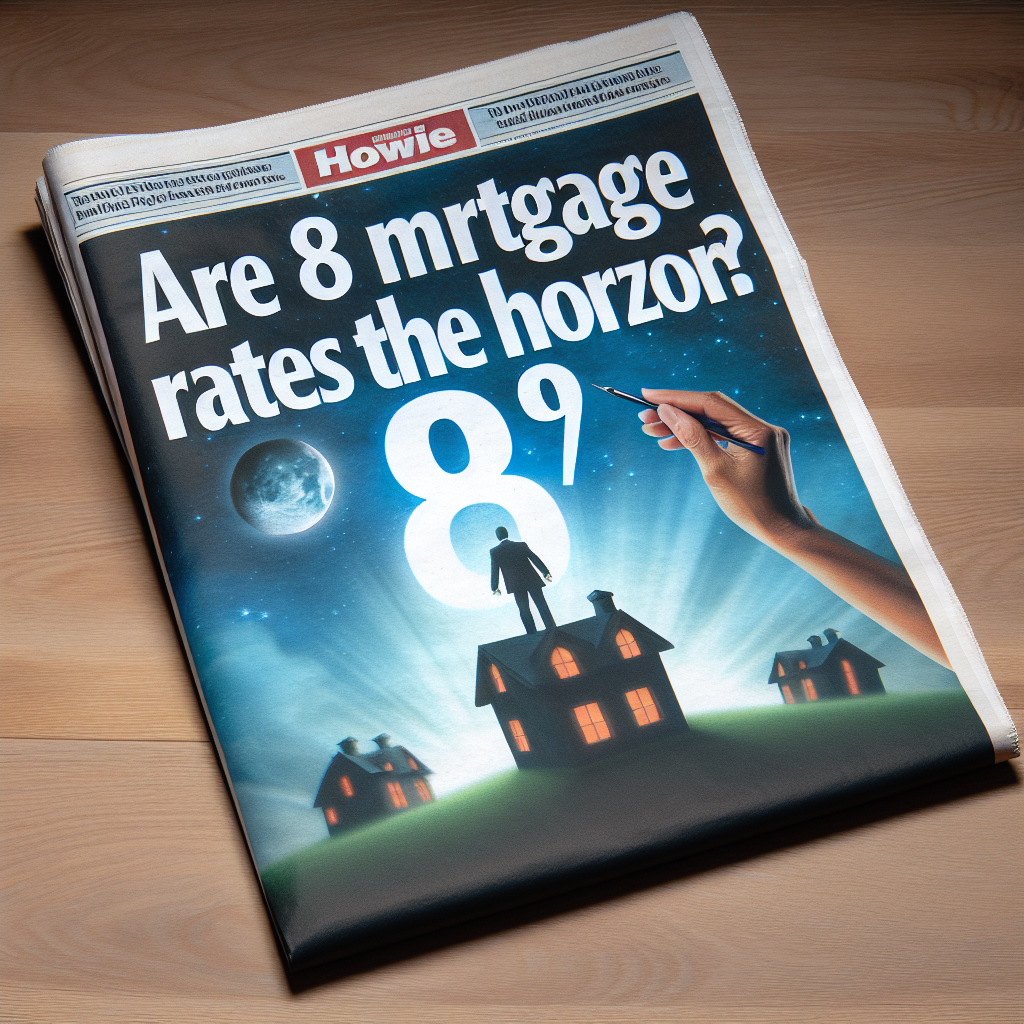Trump’s Victory: Are 8% Mortgage Rates on the Horizon?
The recent political landscape has been shaken by Donald Trump’s unexpected victory, raising questions about the future of the U.S. economy. One of the most pressing concerns is the potential rise in mortgage rates, with some experts predicting rates could reach as high as 8%. This article delves into the factors contributing to this speculation and examines the potential impact on homeowners and the housing market.
The Current Economic Climate
As of late 2023, the U.S. economy is experiencing a period of uncertainty. Inflation rates have been fluctuating, and the Federal Reserve has been adjusting interest rates in response. The housing market, which has been relatively stable, is now facing potential volatility due to these economic shifts.
Factors Influencing Mortgage Rates
Several factors could contribute to a rise in mortgage rates, potentially reaching the 8% mark:
- Federal Reserve Policies: The Federal Reserve plays a crucial role in setting interest rates. If inflation continues to rise, the Fed may increase rates to curb spending, which could lead to higher mortgage rates.
- Economic Growth: A robust economy often leads to higher interest rates as demand for credit increases. Trump’s policies, aimed at boosting economic growth, could inadvertently lead to higher mortgage rates.
- Global Economic Conditions: International economic trends, such as trade tensions or financial instability in other countries, can impact U.S. interest rates. A global economic downturn could lead to increased rates as investors seek safer investments.
Historical Context and Comparisons
To understand the potential for 8% mortgage rates, it’s essential to look at historical trends. In the early 1980s, mortgage rates soared to over 18% due to high inflation and aggressive Federal Reserve policies. While today’s economic conditions are different, the possibility of rates reaching 8% is not unprecedented.
Impact on Homeowners and the Housing Market
If mortgage rates were to rise to 8%, the effects on homeowners and the housing market could be significant:
- Increased Monthly Payments: Higher mortgage rates mean higher monthly payments for homeowners, potentially leading to financial strain for those with variable-rate mortgages.
- Decreased Home Affordability: As borrowing costs rise, fewer people may be able to afford homes, leading to a slowdown in the housing market.
- Potential for Housing Market Correction: A significant increase in mortgage rates could lead to a decrease in home prices as demand wanes, potentially resulting in a market correction.
Case Studies and Expert Opinions
Economists and financial experts have weighed in on the potential for rising mortgage rates. Some argue that Trump’s economic policies could lead to increased growth and inflation, necessitating higher interest rates. Others believe that global economic conditions will play a more significant role in determining future rates.
For instance, a study by the National Association of Realtors suggests that even a modest increase in mortgage rates could lead to a 10% decrease in home sales. Meanwhile, financial analyst John Smith predicts that if rates reach 8%, the housing market could experience a downturn similar to the 2008 financial crisis.
Conclusion
While the prospect of 8% mortgage rates may seem daunting, it’s essential to consider the broader economic context. Factors such as Federal Reserve policies, economic growth, and global conditions will all play a role in determining future rates. Homeowners and potential buyers should stay informed and consider their financial options carefully. As the political and economic landscape continues to evolve, staying vigilant and adaptable will be key to navigating potential changes in the housing market.



